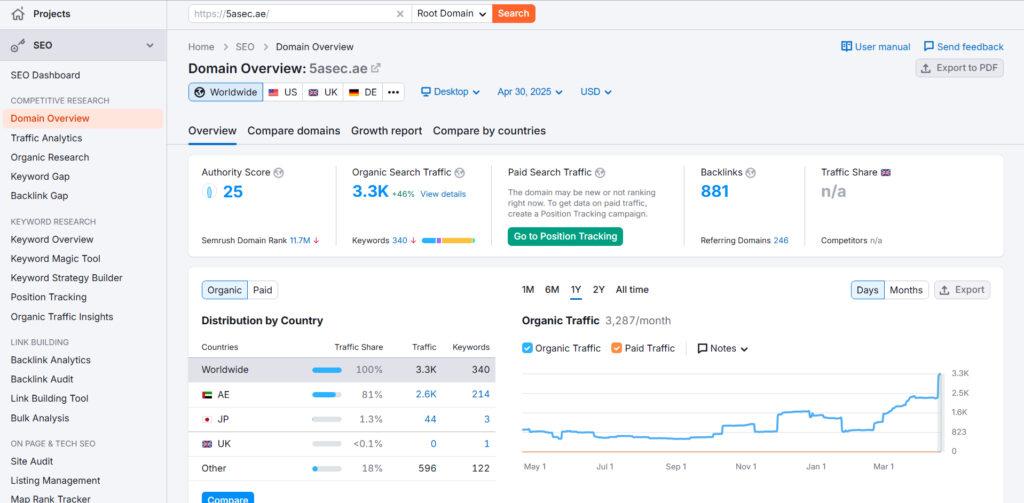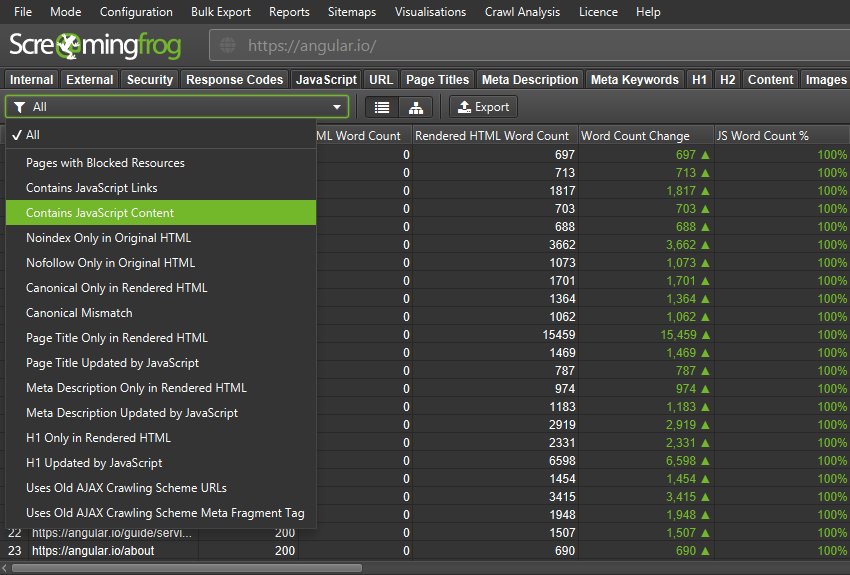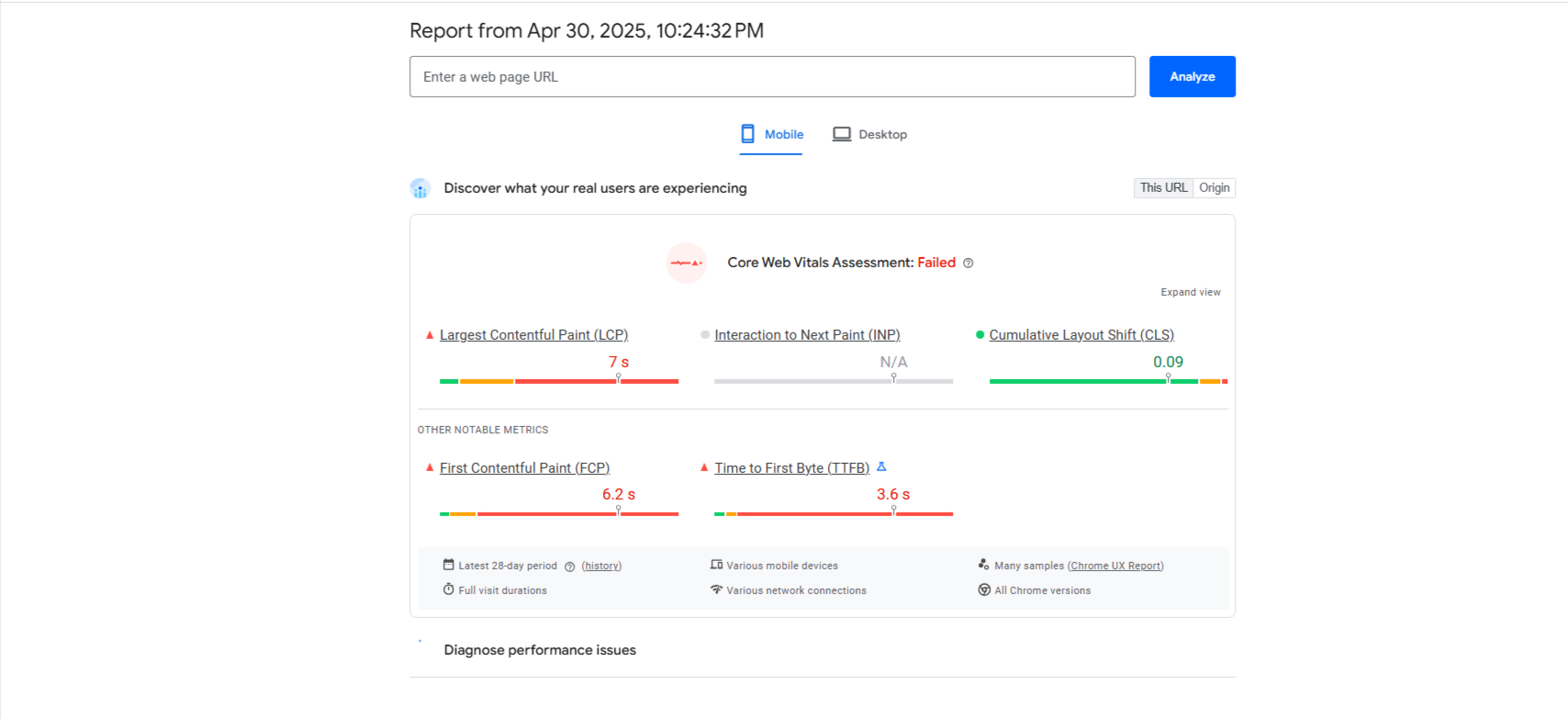As someone who works with SEO tools daily, I can tell you that having the right toolkit makes all the difference in your search optimization efforts. Whether you’re a beginner or seasoned professional, the landscape of SEO tools constantly evolves with AI advancements and Google’s algorithm updates.
Here are some of the best SEO tools that can definitely help you craft better strategies for your website’s search visibility and drive organic traffic.
These comprehensive platforms offer multiple tools under one roof, making them ideal for businesses and marketers who want consolidated reporting and integrated workflows across different SEO activities. These comprehensive platforms are particularly popular among SEO services in the UK regions like Surrey, where integrated reporting capabilities help agencies manage multiple client campaigns efficiently. Considering the challenging search landscape, British businesses of all sizes benefit from these all-in-one solutions when developing their search strategies. Semrush remains the Swiss Army knife of SEO tools in 2025. Its comprehensive suite includes keyword research, competitor analysis, site auditing, and rank tracking. The platform’s AI-powered content optimization features now offer predictive analysis for content performance. Ahrefs excels in backlink analysis and has the largest link database in the industry. Its Site Explorer tool provides in-depth insights into your competitors’ strategies, while the Keywords Explorer helps identify valuable ranking opportunities with less competition. Moz Pro offers user-friendly SEO tools with its standout feature being the Domain Authority metric, which helps predict how well a site will rank. Their recently improved link research tools and local SEO capabilities make it suitable for businesses focusing on regional markets. Finding the right keywords is fundamental to any successful SEO strategy. These specialized tools help you discover what your audience is searching for and how to target those terms effectively. Though basic, Google Keyword Planner remains essential for accessing search volume data directly from Google. It’s free with a Google Ads account and provides accurate baseline data for your campaigns. This free Chrome extension shows search volume data right in Google search results, making preliminary keyword research quick and intuitive. Its content editor also suggests semantically related terms to include in your content. This visual keyword research tool displays questions people ask around your target keywords, helping you create content that addresses actual user queries and supports a comprehensive FAQ strategy. The technical foundation of your website significantly impacts its search performance. These tools help identify and fix technical issues that could be holding back your rankings. This desktop program crawls websites to identify technical issues like broken links, redirect chains, and duplicate content. The latest version includes improved JavaScript rendering capabilities to better simulate how Google sees your site, which can be really helpful if you want to explore the user perspective and see whether your page meets the user intent. This free tool from Google provides direct insights into how your site performs in search results. It shows which queries bring users to your site, highlights indexing issues, and now offers more detailed Core Web Vitals reporting. With Google’s continued focus on page experience, this tool analyzes your site’s loading performance and provides specific recommendations for improvement. The integration with Lighthouse data makes it invaluable for optimizing Core Web Vitals. Creating content that satisfies both users and search engines requires data-driven insights. These tools help ensure your content meets the requirements for ranking well in today’s search landscape. Surfer SEO analyzes top-ranking pages to provide content recommendations based on keyword usage, word count, headings, and other on-page factors. Its AI content editor now includes semantic analysis to help create more comprehensive content. Clearscope evaluates content against top-performing articles for your target keywords, helping you optimize for relevance rather than just keyword density. Its AI-powered content grading system helps ensure your content meets current search engine expectations. Frase uses AI to analyze search results and create comprehensive content briefs. Its question research feature identifies questions users are asking, while the AI writing assistant helps draft content that addresses search intent. Monitoring your search positions helps you understand what’s working and what needs improvement. These specialized tools give you accurate and regular updates on your keyword rankings. As the name suggests, Ranktracker focuses on monitoring your keyword rankings across different search engines. Its clean interface makes it easy to track progress and identify opportunities. SE Ranking provides accurate position tracking with white-label reporting features that are particularly useful for agencies. Its competitor tracking feature helps you stay ahead of others in your niche. Building quality backlinks remains crucial for SEO success. These tools help streamline the process of finding opportunities and managing outreach campaigns. Hunter.io helps you find email addresses associated with a domain, streamlining outreach for link-building campaigns. Its verification feature helps ensure your outreach messages reach the right inbox. Pitchbox automates the outreach process with personalized email sequences. Its integration with SEO metrics helps you prioritize the most valuable link prospects. For businesses serving specific geographic areas, local SEO requires specialized approaches and tools. These solutions help improve visibility in local search results. BrightLocal offers specialized tools for local SEO, including citation building, review management, and local rank tracking. Its Local Search Audit tool quickly identifies areas for improvement in your local SEO strategy. Though simple compared to other tools, a well-optimized Google Business Profile remains essential for local SEO success. Recent updates have expanded the features available for engaging with local customers. With so many options available at different price points, it’s important to allocate your budget wisely. Understanding the value proposition of different tools can help you make informed decisions. The best SEO strategy usually combines free and paid tools: Selecting the right tools for your specific situation requires careful consideration of several factors to ensure you get the most value for your investment. The best SEO tool is often not a single solution but a thoughtfully assembled toolkit that addresses your specific needs. As search algorithms and AI continue to evolve, so too should your approach to SEO tools. Focus on tools that provide actionable insights rather than just data, and remember that even the best tools require skilled interpretation to deliver real results. By leveraging the right combination of these tools, you’ll be well-equipped to improve your search visibility, drive more organic traffic, and stay ahead of the competition in 2025 and beyond. Moiz Banoori is a seasoned Digital Marketing professional with over eight years of expertise in content creation and digital journalism. At REDLUMB, he spearheads teams to craft impactful SEO strategies that drive online growth and visibility. With a background in journalism, Moiz leverages his expertise in digital marketing to develop effective strategies that boost online visibility and help clients achieve their goals.
All-in-One SEO Platforms
Semrush

Ahrefs
Moz Pro
Keyword Research Tools
Google Keyword Planner
Keyword Surfer
Answer the Public
Technical SEO Tools
Screaming Frog SEO Spider

Google Search Console
PageSpeed Insights
Content Optimization Tools
Surfer SEO
Clearscope
Frase
Rank Tracking Tools
Ranktracker
SE Ranking
Link Building Tools
Hunter.io
Pitchbox
Local SEO Tools
BrightLocal
Google Business Profile

Free vs. Paid Tools: What’s Worth It?
How to Choose the Right SEO Tools





